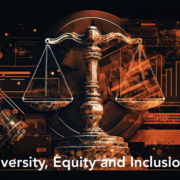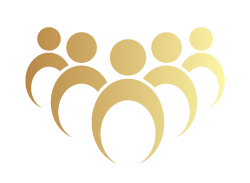Navigating the Challenging Landscape: Businesses Facing Controversial Legislation Impacting ALAANA and MOGII Communities
June 28, 2023
*Acknowledging the deficiency inherent in umbrella terms and labels, the terms ALAANA (African, Latinx, Arab, Asian, or Native American) versus BIPOC (Black, Indigenous, and People of Color) and MOGII (Marginalized Orientations, Gender Identities, and Intersex) versus LGBTQIA+ (Lesbian, Gay, Bisexual, Transgender, Queer or Questioning, Intersex, Asexual and the plus, which allows expansion to include more identities) are used, despite acknowledging those two umbrella terms also do not cover every marginalized identity.
In the ever-evolving landscape of business, where the intersection of commerce and social progress often collide, there emerges a complex web of challenges that confront companies striving for inclusion and equity. Lately, a wave of legislative measures at the state level has given rise to concerns among businesses, particularly those advocating for the rights of people from diverse, underrepresented, and marginalized communities.
These laws, seen by many as detrimental to the very fabric of diversity and social progress, pose formidable hurdles for businesses operating in affected regions. Here, we delve into the intricate difficulties faced by these businesses as they grapple with the implications of such controversial legislation.
At the heart of these legislative measures lies a troubling threat to the essence of inclusion. In states where discriminatory laws have been enacted, companies that have embraced cultivating a diverse workforce and fostering an inclusive environments now find themselves at odds with the values they hold dear. These laws, by their very nature, impede the hiring, retention, and promotion of ALAANA and MOGII individuals, perpetuating the very inequalities many have fought so hard to overcome. The result? A stifling of innovation and an erosion of the foundations upon which successful organizations are built.
Yet, the challenges extend beyond the realm of ethics and social responsibility, permeating the legal and financial landscape. Companies standing firmly in support of inclusive policies and employee rights may face legal battles and lawsuits, as they dare to prioritize their values above discriminatory legislation. The uncertainty that shrouds such legal battles can cast a long shadow over a company’s reputation and financial stability, deterring potential investors, partners, and customers who place a premium on social responsibility.
Moreover, the ripple effects of these contentious laws can be felt acutely in a company’s bottom line. The association of businesses with regions where such legislation holds sway often invites backlash in the form of boycotts and consumer-led campaigns. The consequences are all too real—a decline in sales, a tarnished brand image, and ultimately, reduced profitability. Navigating the treacherous waters of social activism, legislation, and consumer sentiment becomes an art form that businesses must master to mitigate the risks they face.
But the impact of controversial legislation stretches beyond balance sheets and shareholder value. It affects the very well-being and job satisfaction of employees, particularly those from marginalized communities. In states where discriminatory laws prevail, the morale and mental health of MOGII and ALAANA employees are inevitably compromised, as they grapple with increased vulnerability and exclusion. The toll is unmistakable—higher turnover rates and a challenging environment for attracting and retaining top talent.
Businesses that prioritize the well-being and inclusion of their workforce often find themselves walking a precarious tightrope, caught between the legal landscape and the need to support and retain their employees. The task of striking a delicate balance between compliance with local laws and the principles that underpin a fair and inclusive workplace poses a significant challenge.
Indeed, these legislative battles thrust upon businesses can impede their efforts toward increased social responsibility and ethical duty. Many companies have invested heavily in corporate social responsibility initiatives aimed at cultivating diversity, equity, and inclusion. However, when confronted with the harsh reality of operating in states that harbor discriminatory legislation, businesses face ethical dilemmas. They must make the difficult choice of either upholding their principles and facing potential backlash or adapting their practices to align with local laws, potentially alienating employees and customers who hold the value of inclusion dear. It is a tightrope walk that tests the values and integrity of businesses to their core.
Yet, in the face of these challenges, a glimmer of hope emerges—a beacon of collective action and advocacy. Many businesses are rising to the occasion, embracing the role of advocates and lobbyists, leveraging their economic influence and industry clout to exert pressure on lawmakers. Through alliances, participation in legal battles, and financial support, companies are actively working to protect the rights of marginalized communities and foster inclusive environments.
It is in this spirit that businesses must chart their course forward, armed with a proactive stance in driving change. By collaborating with organizations, employees, consumers, and lawmakers alike, businesses can foster environments that prioritize diversity, equity, and inclusion. Together, organizations can strive for a future where legislation not only supports the rights and well-being of all individuals, regardless of their diverse identities and lived experiences but actively champions the progress they seek to achieve.
In the challenging landscape ahead, businesses must navigate myriad hurdles—threats to inclusion and belonging, legal and financial implications, employee well-being, ethical dilemmas, and the pressing need for advocacy. It is only by threading this intricate needle with care and conviction that we can pave the way toward a more just and equitable society.

